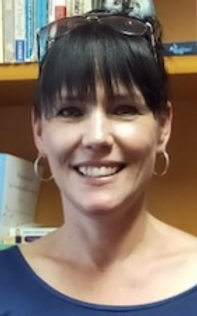Pacific Research in Inclusive and Specialist Education
Overview of Our Research
Pacific Research in Inclusive and Specialist Education (Pacific RISE) are a team of experienced inclusive development practitioners and professional development providers with broad knowledge and expertise in working in the Pacific. Our philosophy is to create capacity to ensure sustainable improved practices in partnership with communities and stakeholders.
Within our range of skills and abilities and professional knowledge, we bring: research and evaluation capability; current evidence-based professional development to inform teacher practice; a global best practice understanding of inclusive education; experience of working inside Pacific classrooms; and working with Pacific educators that overtly reflect and respect the local education context.
The Pacific RISE logo below was gifted from Samoan Māori tattoo artist Xander Temoananuiakiwa.


The Pacific RISE team
Who we are
Associate Professor Angela Page
Associate Professor Angela Page is an experienced educational psychologist and specialist education teacher who has worked as an inclusive education advisor in New Zealand, Australia Asia and Pacific countries such as Indonesia, the Philippines, the Republic of Nauru, Tuvalu, Fiji, the Cook Islands, Vanuatu, and Samoa. Her research and practice interests are focused in addressing the needs of marginalised children and youth within new and emerging contexts within the Asia-Pacific region. Her approach to this work is to apply principles of working in partnership by promoting local knowledge and practices that are already known to be effective in each context and then to add strength to these existing methods.
Associate Professor Joanna Anderson

Dr Tom Porta
Joanna Anderson (PhD) is an Associate Professor in inclusive education at the University of Adelaide, Australia. She has a growing research profile and her areas of interest include inclusive education in Pacific contexts, school leadership and inclusive education, and inclusive education in new build schools, and the ethical and moral considerations of inclusive education. Joanna has worked in the Pacific alongside education departments and teachers to develop inclusive education policies and practices, and has published in this area. She is part of a committed team of academics working to support nations to develop and implement culturally responsive inclusive education policy and practice. Previously, Joanna worked for more than twenty years as a teacher and school leader across primary and secondary settings in both Australia and New Zealand.
Professor Susan Ledger

Professor Susan Ledger is Head of School - Dean of Education at the University of Newcastle. Susan is a dedicated educator, researcher and advocate for the teaching profession who has a passion for connecting people, places and projects. Susan has had a range of educational experiences in both primary, secondary and tertiary settings around the globe. Susan's current research interests intersect three research fields: policies and practices related to teacher education; preparing to teach in diverse contexts (international & remote); and the use of mixed reality simulations to better prepare students for these contexts.
With over a decade spent teaching in both primary and secondary settings, and another four years in tertiary education, Tom now works as a lecturer and researcher in inclusive education.
His research seeks for ways to enhance instruction efficiency and effectiveness with a focus on empowering educators through robust professional development, nurturing skills and confidence in embracing diverse teaching approaches.
Professor Christopher Boyle

Christopher Boyle, PhD is a Professor of Inclusive Education and Psychology at the University of Adelaide. He is a Fellow of the British Psychological Society and a Senior Fellow of the Higher Education Academy. He was previously Editor in Chief of The Educational and Developmental Psychologist (2012-2017) and is currently the co-founding editor of the new journal Belonging and Human Connection launched in 2022. He is an internationally recognised and respected academic and author on the subjects of inclusive education, and psychology. Chris has various experiences in the Pacific region – he is an Adjunct Professor in the School of Education at the University of Fiji, has collaborated on research in the Cook Islands with Dr Angela Page, is an invited member of the Fiji Higher Education Commission External Reference Group, and has been involved in the development of the Nauru Inclusive Education Policy. He is a registered psychologist in the UK and Australia.
Dr Jo Mosen

Dr Kate Ferguson-Patrick
Dr Jo Mosen has extensive experience in inclusive development across the Asia Pacific region and is an adjunct lecturer at the University of Newcastle as well as a lecturer at the University of Melbourne in the Learning Intervention Academic group. Her work spans disability inclusion in education programs, gender and disability sensitivity in curriculum development, disability rights and the intersectionality of disability and gender in development programming. She also has skills in research and evaluation relevant to informing an evidence-based understanding of the lived experience of marginalised groups in developing contexts. Joanne’s work is underpinned by a rights-based approach with empowerment of people with a disability at the forefront of her work, ensuring opportunities for capacity building and meaningful inclusion. Jo is an Adjunct Senior Lecturer at the University of Newcastle supporting research and co-supervision of PhD candidates across the Pacific in inclusive education.



Kate taught in primary settings in the UK and Australia for 15 years before joining the University of Newcastle, initially as a school/university liaison teacher and currently as a senior lecturer in primary curriculum and pedagogy specialist. Kate’s concern is for 21st century learning, promoting collaboration through cooperative learning, and intercultural understanding through global education through her research and teaching practice.
Contact Us
University Dr, Callaghan NSW 2308, Australia